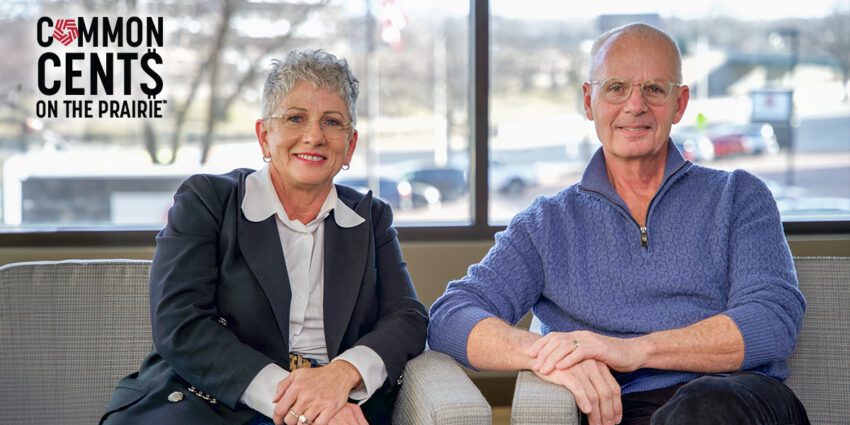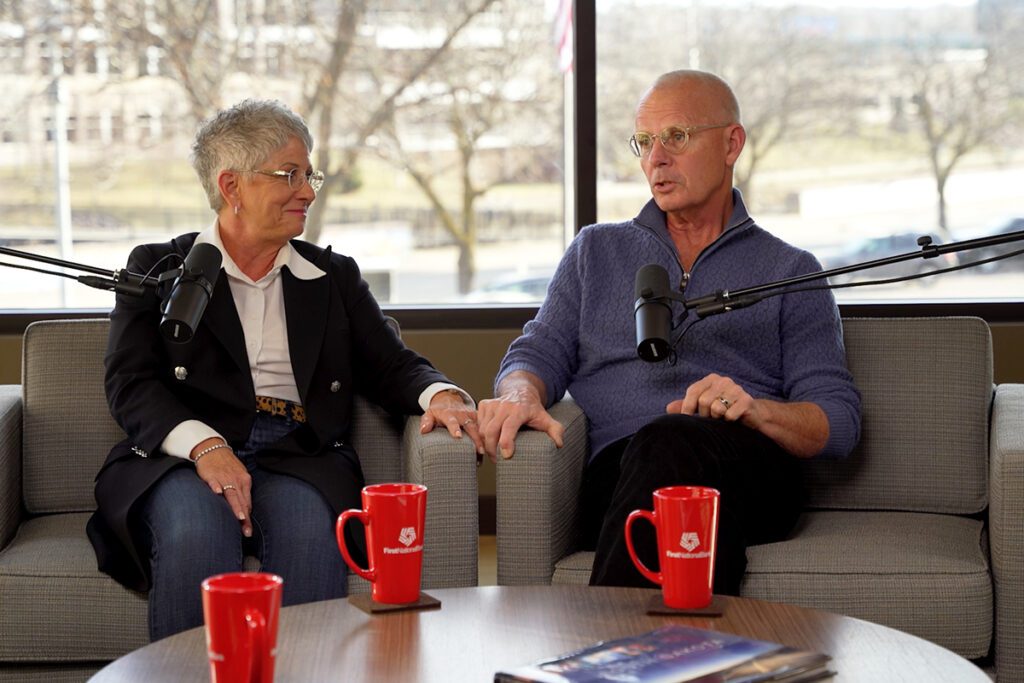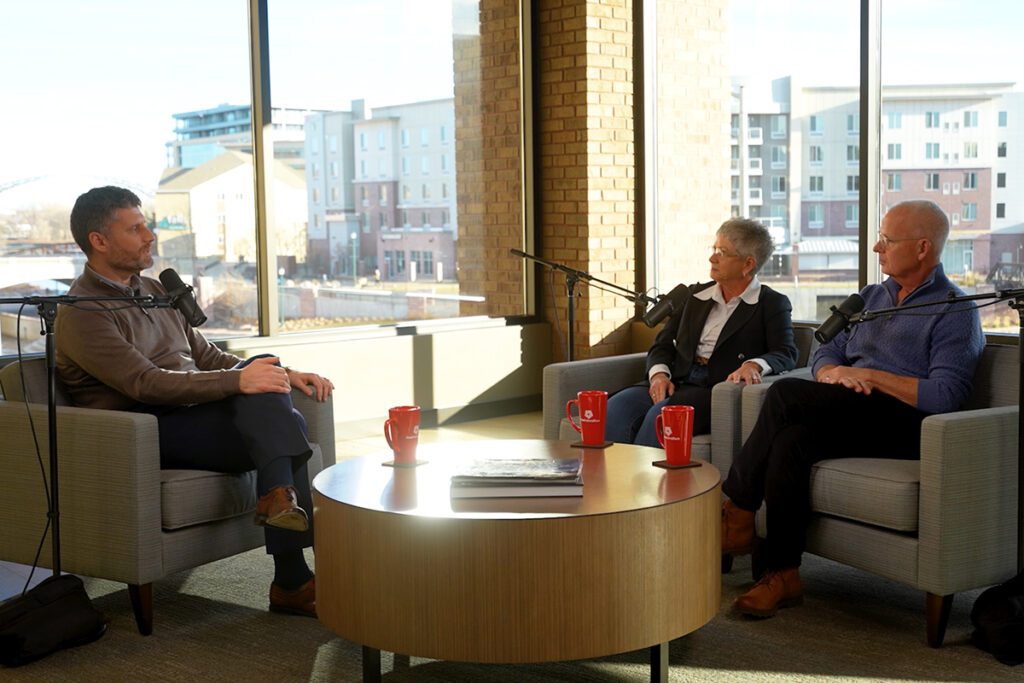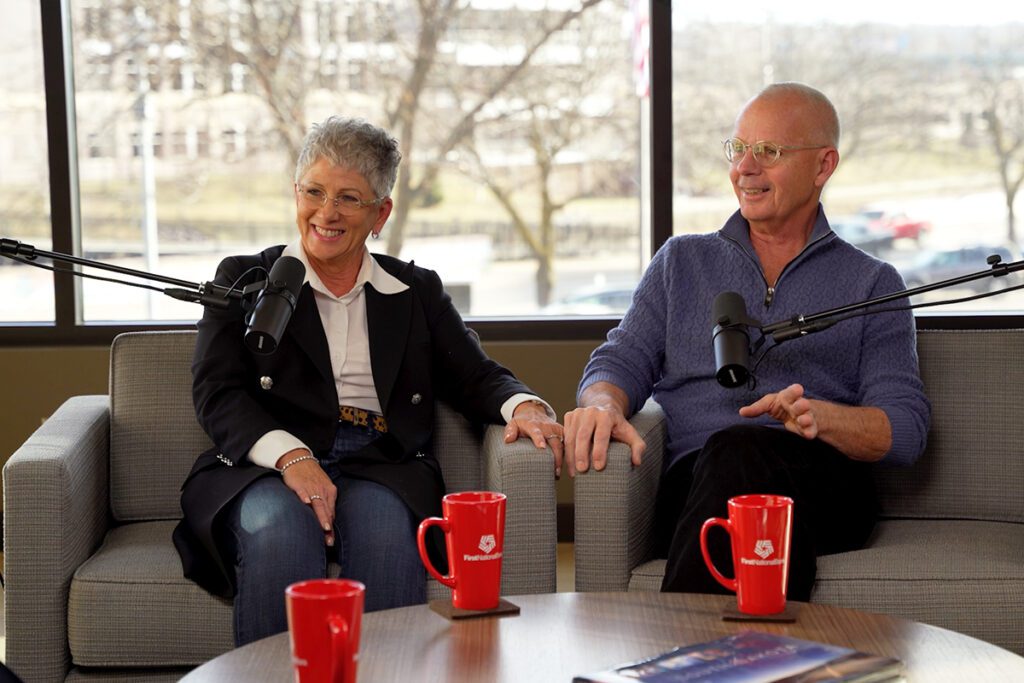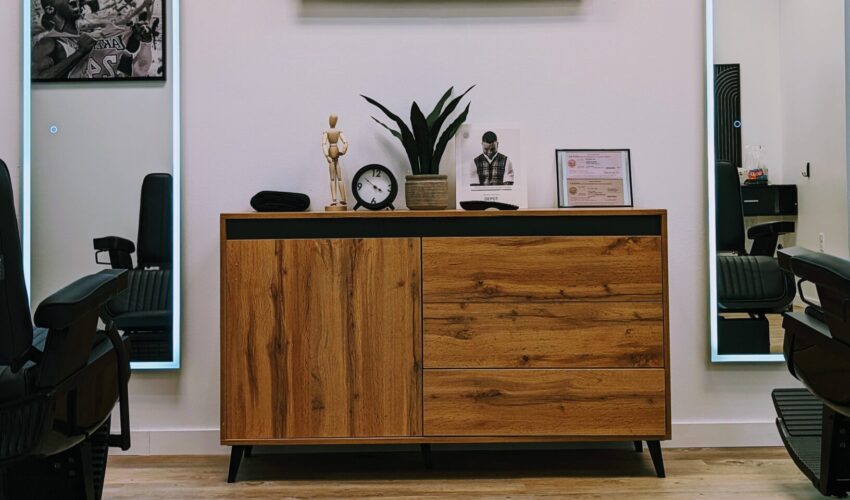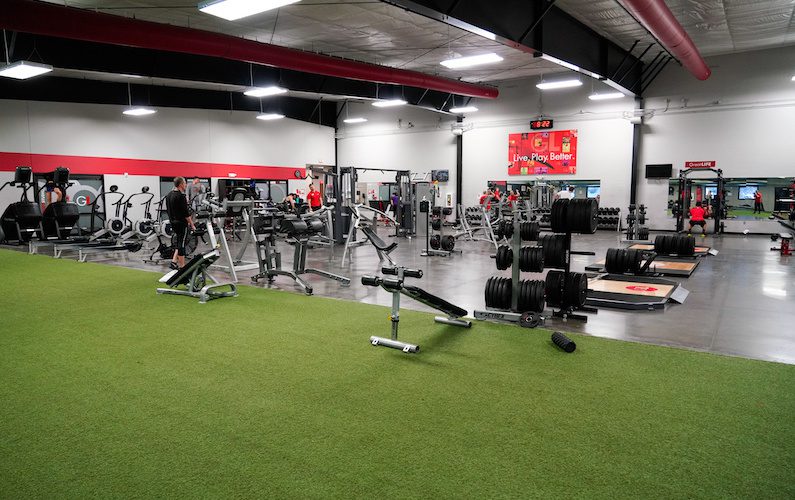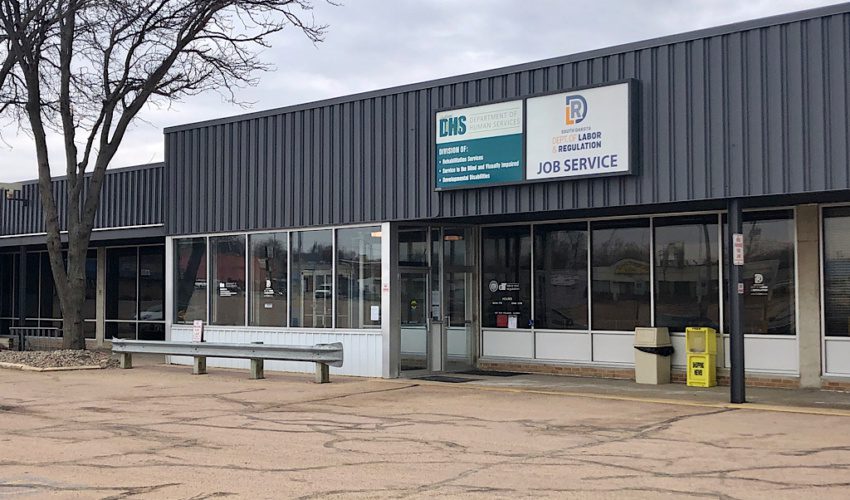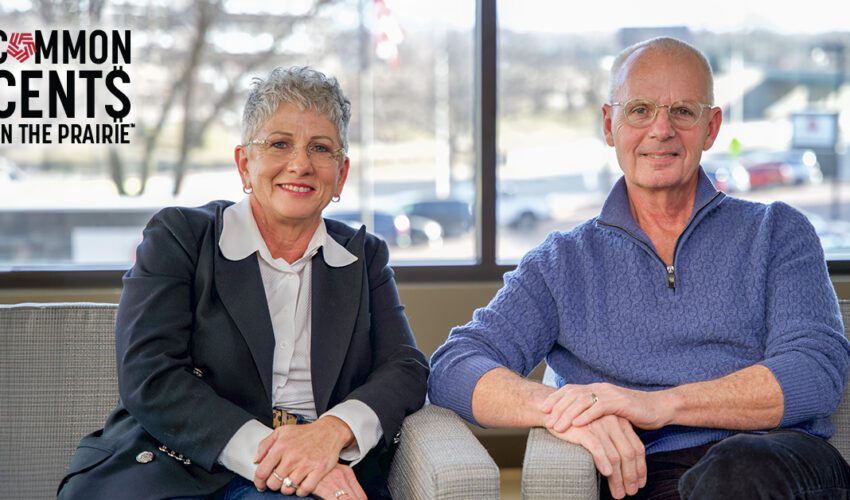Blue Bunny family business leaders share story of company transition, future focus
Feb. 15, 2024
This paid piece is sponsored by First National Wealth Management.
“The question is always, ‘Why?’ Why sell a successful business? Well, there’s always the rest of the story.”
A little more than a year ago, Mike and Cheryl Wells sold their family’s business, Wells Enterprises — the renowned, Iowa-based maker of Blue Bunny ice cream.
Now, they’re sharing their story with Adam Cox, head of First National Wealth Management, on an episode of the Sioux Falls podcast “Common Cents on the Prairie.”™
Check out the highlights from their conversation below, and, when you’re ready, you can watch the full episode on YouTube or listen on your favorite streaming app.
“Never ask somebody to do something you’re not willing to do yourself”
Adam: Mike, I don’t think it’s an exaggeration to say that you’ve had an atypical career. You eventually came to lead a highly successful family business, but when you took over in 2007, it wasn’t in the best of spots.
Mike: I needed a job, so I went to work for the family business doing whatever I could. As a result, my dad looked at me early in my career and said, “Never ask somebody to do something you’re not willing to do yourself.” I had the opportunity through my 46-year career to literally do everything in the company. I drove trucks, worked in coolers and freezers, was in sales and marketing, and oversaw almost every department over time.
So when I was given the opportunity in 2007 to step in as CEO, it was as a result of having had that experience broadly. And at the same time, there was, at one point, more than 14 family members pulling a paycheck from the company business. We made a really big decision to go from a family-first business to a business-first family — get the business right and then see what that meant for the rest of the family.
I had the “pleasure” of selling off grandpa’s heritage milk business, and taking the proceeds and paying down debt, and restructuring the company. Doing the kind of things that, quite honestly, outside investors would do. But I can tell you, without Cheryl’s support, I never could have gotten that done.
Adam: Cheryl, what was it like for you walking alongside Mike as he was going through that?
Cheryl: We had many things happen through the years, like everybody does. We had a listeria recall once; that was millions and millions of dollars of ice cream that just got thrown in the dump. As well as one year, the ice cream plant in one of the rooms, it blew up. The whole community had to be shut down, and it was super dangerous. We’re really grateful that nobody was hurt.
And knowing that with your name being Wells, a lot of people were watching you. It was always really important to us that we were together in our decisions and how we leaned into those times of crisis.
“We felt the responsibility for the family tremendously”
Adam: Did you feel a pretty constant pressure from the rest of the family to carry on the legacy of the business?
Mike: I thought about it every day; it’s impossible not to.
In our case, Cheryl and I were two of 35 family shareholders represented by two main family groups. I really felt the responsibility in the midst of a near-bankruptcy experience in 2007. The family said, “Bankruptcy is not an option because we’ve done business in good faith, and we’re not going to do that to those suppliers that trusted us.”
Selling under duress — there was no way the family was going to give up, at that time, a 90-year-old legacy over one of several tough financial situations.
So the third option was to really get serious about restructuring, and that the rest of the family would step out. In that, yes, we felt the responsibility for the family tremendously.
Adam: As we sit here today, it’s been almost exactly a year since you sold the company. How did it feel to close out that chapter of your life?
Cheryl: It didn’t seem real, I’ll be honest. It was a tough year leading up to it; there was just so much going on. And there were a lot of times I was just sensing the need to help Mike hold on through it because it was so stressful. It was all we’d ever known as a couple, so then I began to think, well, what could life be beyond this?
Mike: I’ve had a few opportunities to be an executive in the classroom and speak in some college situations this year.
The question is always, “Why?” Why sell a successful business? Well, there’s always the rest of the story. You take a 109-year-old business enjoying the single best year it’s ever had, recovered from COVID, all of the challenges. But in the midst of that, I’m the only active family member in the business, and there’s nobody in the next generation that’s shown an interest. That means we’ve got to raise up leadership from within.
We enjoyed the privilege of doubling our size from 2010 to 2020 and ended up with a little over $2 billion in revenue. And you know that successful businesses need to continue to grow. So you don’t have leadership coming up. You know that you’ve got huge capital requirements to double the business going forward. You look around and go, “I can see what’s happening: I’m going to work here until I die.”
And the entire community would continue to ask two questions: What’s going to happen when Mike leaves? And, what would happen if the business got sold? I said let’s go solve for that, and so we did.
We quickly learned that we couldn’t be the company we were by going public; we weren’t going to live under the pressure of quarterly performance. Private equity has a place, but not at the table for who we were as a large employer in a small community. We looked at running a process.
But, in my case, I had an opportunity to build a relationship dating back to 2019 with another tremendously successful business in Ferrero. We were able to put together the dream transaction that kept every employee at their employment, at their compensation levels, guaranteed their employment into the future and had capital available to invest in a way that my family wasn’t capable.
This relationship with Giovanni Ferrero, the care and all of the work that went into this made me understand that this was probably the only transaction we could do that would preserve our history, honor it into the future, create a liquidity event that would create generational wealth for our family and not do it at the expense of our employees and community.
Wells Blue Bunny and beyond
Adam: You’ve told me that neither of you is retiring, but you’re repurposing. What does that look like for the two of you?
Mike: One of the most successful parts of the restructuring of the business in 2007 is in subsequent years where Cheryl and I realized that putting down some deep roots in our community — beginning to invest in a way where people knew that we weren’t going anywhere — was important.
So we opened Cheryl’s coffeehouse and a ministry center. We have a small development company and bought some historic buildings in downtown Le Mars that we’re going to restore, looking to build more of an entertainment district downtown.
Adam: That’s not something people talk a lot about, is finding a new purpose in retirement. I tell people all the time, you’re not just retiring from something, you have to retire to something.
Mike: We’re young, and we’re healthy. We know we still have a lot to contribute. We are trying to be mindful and purposeful around time periods. From the development standpoint, by the time we’re 70, what do we want to be doing? By the time we’re 80? Just knowing that there’s a natural timeline to things and how we want to be intentional.
Cheryl: Everything we’ve always done has been about people; that’s what we want to be about. Whatever that looks like, investing in people.
If you were inspired by the Wells’ story of repurposing and reinvesting after the sale of the family business, reach out to the team at First National Wealth Management. They’d be happy to help you live out your retirement goals!

